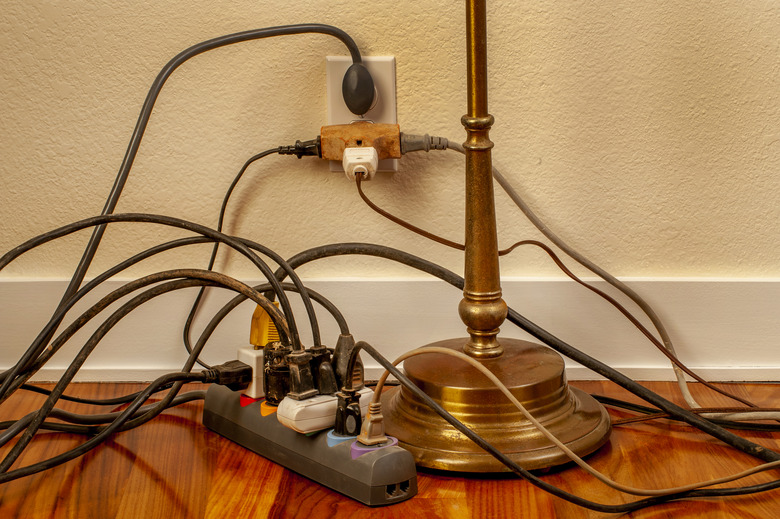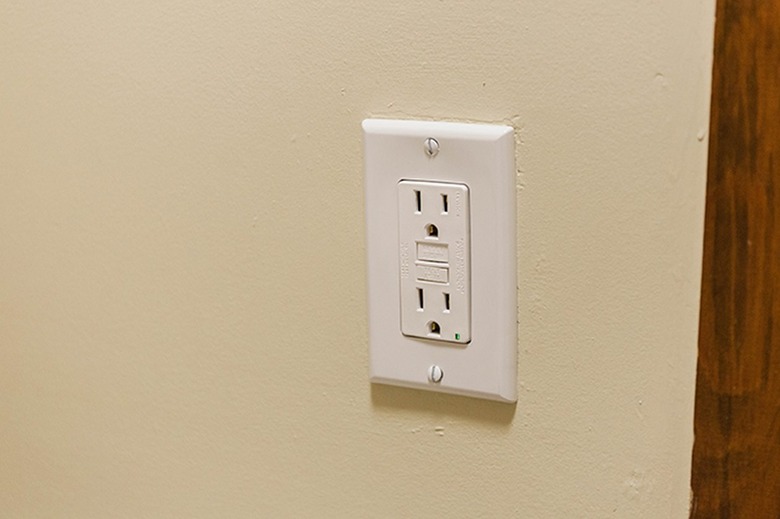The 7 Most Common Causes Of Home Electrical Fires
We may receive a commission on purchases made from links.
First, the good news: As our understanding of the most common causes of electrical fires evolves, so does our ability to protect against them. Because of this, the number of home electrical fires in the United States has steadily declined since 1980. Despite this trend, however, electrical failures still accounted for 13 percent of residential fires between 2012 and 2016, making them the second leading cause of house fires. Although progress has been made, it's still important to understand what causes electrical fires so you can better protect your home from them.
Once you have a basic understanding of electrical faults, you can check the common causes of electrical fires in your home and make sure everything is in good working order. (And while you're at it, now is a good time to test the smoke alarms in your home.)
1. The Number 1 Cause of Electrical Fires: Arcing
1. The Number 1 Cause of Electrical Fires: Arcing
Arcing, or arc fault, is the name given to any condition in which electricity goes somewhere other than where it is intended. Sometimes, an arc fault occurs when electricity jumps from one conductor to another. This can occur when damaged electrical wiring, frayed cords or loose electrical connections allow electricity to escape a given path and travel to another.
Short circuits are a specific type of arc fault and another common fire-starting electrical issue. In a short circuit, electricity doesn't jump from one conductor to another. Instead, a worn power cord or faulty wiring allows the electricity to follow a path other than its intended one without making a jump. A picture-hanging nail puncturing an electrical wire in the wall, for instance, can have the same effect, traveling from the wire to the nail and generating heat as it passes through the nail.
Arc faults sometimes occur in the form of ground faults — because no matter where electricity is generated or how far it travels, its ultimate goal is to reach the ground. When things go as planned, the electricity in your home flows to where you need it and is then sent to ground. If the electrical current can find a shortcut to ground, however, it will absolutely take it.
When they occur, arc faults can produce heat up to 10,000 degrees Fahrenheit, easily starting a fire. To prevent this, building codes often mandate that arc-fault circuit-interrupters (AFCIs) must be installed in homes and businesses. AFCI breakers get installed in your breaker box and are best put in by a qualified electrician.
2. Light Fixtures
2. Light Fixtures
When changing the light bulbs in both overhead fixtures and lamps, it's crucial that you use a bulb with the correct wattage. If a 40-watt bulb burns out and all you have at home are 75-watt bulbs, it's tempting to just use the higher-wattage bulb. Resist the temptation. Using a higher-wattage bulb can start a fire.
If you want more light without buying another lamp, consider switching to LED bulbs. LED bulbs operate at lower wattages while producing a brighter light. They also generate less heat than traditional incandescent bulbs.
3. Misused Extension Cords
3. Misused Extension Cords
Extension cords can make life a lot easier, but unfortunately, they're often used improperly — sometimes with devastating consequences. To be safe while using an extension cord, always make sure to use the proper extension cord for the job, and never use indoor cords outside.
It's also critical that you check how much of an electrical charge an extension cord can handle. Extension cords are rated using amperage. If you use them with an appliance or electrical device that draws more amps than the cord can tolerate, it will cause overheating and become a fire hazard. Many aren't intended for use with power-hogging electrical appliances, like microwaves.
Never plug extension cords into each other and avoid running them through walls and ceilings or under carpet. Before using an extension cord, inspect it to make sure it's in good shape, and the coating isn't torn or nicked.
4. Space Heaters
4. Space Heaters
Electric space heaters are one of the most common causes of electrical fires in the winter. The worst offenders are those with super-heated coils. The coils in these heaters get so hot that they can start a fire the instant that a window curtain or other combustible item touches them, and direct contact isn't always necessary. Carpet, upholstered furniture and other combustibles can ignite in close proximity to these heaters even without direct contact.
If you need to use a portable heater, select an enclosed radiator style. These have their heat coils covered to reduce the risk of contact, but you'll still need to keep them well away from flammable objects. Avoid running them on carpeted surfaces and use them only when you're present in the room. Never leave a space heater of any kind unattended.
5. Making Bad Modifications
5. Making Bad Modifications
Sometimes, home electrical fires are the result of bad choices. Oversized circuit breakers are a common one. If a particular breaker keeps blowing in your home, it's tempting to put a higher-wattage breaker in your electrical panel to keep the power flowing. This is a bad idea.
Circuit breakers trip for a reason, and that reason is to help prevent electrical fires. You're inviting danger if you replace a breaker with a heftier one. Instead, figure out what the problem is and fix it, whether that means plugging in the microwave somewhere else or having an electrician help you troubleshoot. Always replace bad circuit breakers as soon as you discover the problem but do so with a new unit of the same specifications.
Another bad decision homeowners often make is cutting the ground off their electrical plugs. It's frustrating when your electrical cord has three prongs, but your electrical outlet only has two slots (an issue often seen in older homes). However, the third prong is the ground, and like circuit breakers, it has a job to do.
In this situation, you can use an adapter that turns a three-pronged plug into a two-pronged plug, but it's better to use another outlet. If your home is full of two-pronged outlets and three-pronged appliances, it may be time to call an electrician for an upgrade. Do not cut the ground plug off the cord or otherwise try to defeat the ground system.
6. Overloading Outlets and Outlet Strips
6. Overloading Outlets and Outlet Strips
Sometimes, you need to plug in more than one electrical device. Outlet strips are a great way to expand your electrical space but use them carefully. Try not to fill every outlet on the strip and never plug an outlet strip into another outlet strip.
Keep in mind that even though your outlet strip can handle multiple devices, there is still a limit to what your electrical outlet can do. Outlet strips get their power from your wall outlet, which you can overload. Just because there are openings left on an outlet strip doesn't mean that you should plug in more things.
7. Faulty Outlet Issues
7. Faulty Outlet Issues
Even if the wiring in your home is in excellent condition, electrical outlets themselves can go bad, and they increase the risk of fire when they do. If you have an outlet that only works sometimes, it's time to replace it. You should also replace your electrical outlets if cords plugged into the outlet seem loose rather than being held snugly in place.
Of course, a dead outlet is also a sign of a problem. Unfortunately, dead outlets may result from damage to the outlet itself or damage somewhere else in the electrical system. If you're DIY savvy and comfortable working with electricity, you can try replacing a dead electrical outlet yourself. If a new outlet fails to fix the issue, have an electrician track down the main source of the problem and fix it for you.
A smoking electrical outlet is also a big sign that something is wrong. Don't attempt to fix this problem yourself. Turn off the power to the outlet's circuit and call an electrician right away if you see this.
References
- National Fire Protection Association: Home Electrical Fires
- Fire Ranger: 7 Most Common Causes of Electrical Fires
- ABC Plumbing, Sewer, Heating, Cooling and Electric: The 7 Most Common Causes of Electrical Fires In The Home
- FireRescue1: 5 Common Causes of Electrical Fires
- Home Team Electric: Top 10 Causes of Electrical Fires: How to Keep Your Home Safe
- Arc Angel Electric: What Causes an Electrical Fire in a House?


